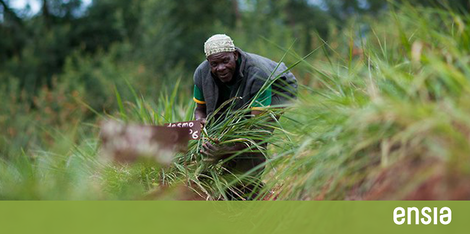Your podcast discovery platform
Curious minds select the most fascinating podcasts from around the world. Discover hand-piqd audio recommendations on your favorite topics.

piqer for: Climate and Environment Boom and bust Global finds
Didem Tali is an award-winning journalist covering international development, gender, displacement and environment issues for English-language media around the world.
How Small-Scale Kenyan Farmers Are Tackling The Effects Of Climate Change
Small-scale Kenyan farmers are extremely vulnerable to the effects of climate change, and they have already been suffering many consequences of it. That said, they are finding ways to tackle these challenges with three major innovations.
• Alternative animal feed: Kenyan farmers increasingly use brachiaria grass, a tropical plant known for its resilience for erratic weather patterns, low fertile soil and droughts. This plant also helps to reduce the environmental impacts of livestock production, which actively combats climate change. Moreover, it is a superfood for livestock, boosting the milk production by up to 40 percent.
• Nutrient block: Especially in poorer areas that are more dependent on agriculture and more vulnerable to erratic weather changes, the death of livestock can also be the financial death of many families. However, by providing food supplements that are known as ‘nutrient blocks’ to their animals, many Kenyan farmers prevent this. At 100 Kenyan shillings (about US$1) for a block of 3–4 kilos (7–9 pounds), they are also cheaper than conventional feed.
• Planting fodder trees: A plant indigenous to Africa, fodder trees provide an important source of protein for livestock to thrive. These fast-growing trees that grow deep roots are also resistant to droughts and provide very important nutrients to animals, especially during the long dry seasons.
